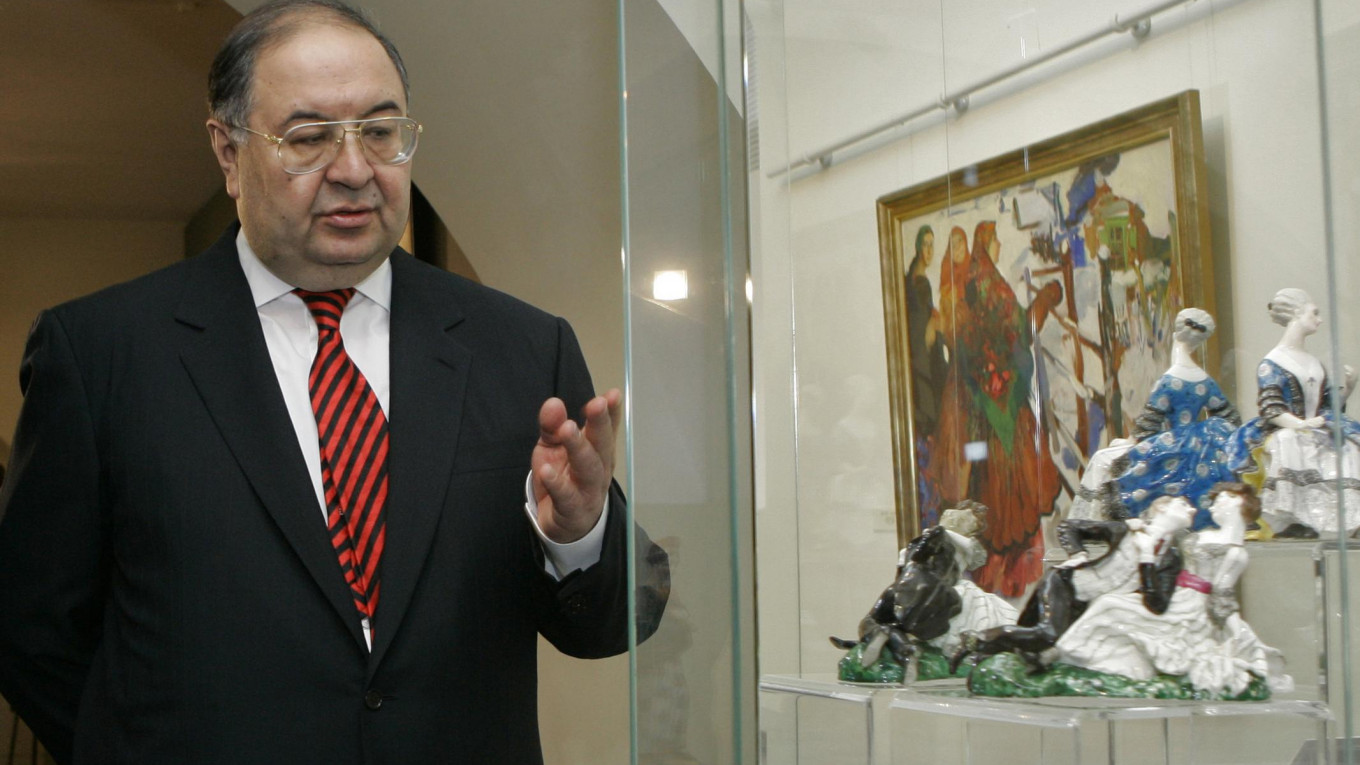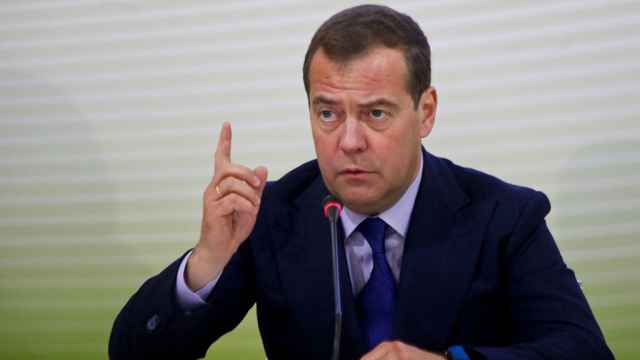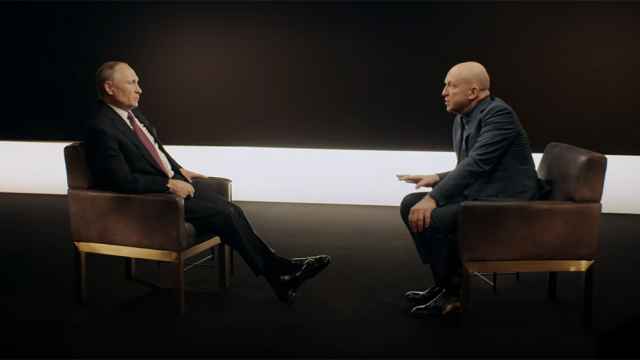On Tuesday, the business newspaper Vedomosti published an enormously long interview with Alisher Usmanov, the Russian billionaire who recently vowed to sue opposition leader Alexei Navalny for defamation. In the interview, Usmanov defended himself against Navalny’s allegations that he bribed Prime Minister Dmitry Medvedev, accusing Navalny of “crossing a red line.”
According to Usmanov, he donated a mansion in Rublyovka, a prestigious residential area in the western suburbs of Moscow, to “Sotsgosproekt” (a charity owned by a man named Ilya Eliseev), in exchange for real estate the organization already owned near Usmanov’s own home. He says he originally bought the mansion for his sister, after their parents died, but she never moved in, after deciding it was too big for her.
Usmanov says he got the idea for the land exchange when Eliseev — an old “drinking buddy,” the billionaire joked — told him that Sotsgosproekt wanted to build “five big mansions” near his home in Rublyovka, as a “development project.”
“For a long time, I’d been looking for a way to expand my own land plot, where I’ve been living for more than 20 years, and so I suggested trading their 12-hectare [30-acre] land plot for my sister’s land, not far from my home, with an already finished home,” Usmanov told Vedomosti, explaining that both properties were worth about $50 million.
Asked if he knows Prime Minister Dmitry Medvedev sometimes visits the donated mansion in Rublyovka, Usmanov said only that Eliseev mentioned plans to use the property for major ceremonies.
“I’m not really immersed in [what Sotsgosproekt actually does],” Usmanov explained. “I heard that the foundation was donating money to the restoration of Konstantinovsky Palace in St. Petersburg, and supporting other various social projects. I know Ilya Eliseev.”
On March 2, Alexei Navalny’s Anti-Corruption Foundation made national headlines with an investigative report accusing Dmitry Medvedev of using expensive real estate and yachts that formally belong to charities controlled by his close friends and associates. According to Navalny, Usmanov donated his mansion in Rublyovka to Sotsgosproekt as a bribe for the prime minister, paid through Ilya Eliseev, one of Medvedev’s old classmates.
“For me, Navalny’s actions have always been the worst kind of superficiality,” Usmanov told Vedomosti, arguing that the anti-corruption activist and presidential hopeful “crossed a red line” when he personally accused Usmanov of committing a crime.
“The only thing I can say about [Navalny’s] declarations is that they’re a lie,” the billionaire said, adding that he paid more than $400 million in taxes last year in Russia, where he remains a tax resident, he says, contrary to some media reports.
“What has Navalny created? Other than provocations aimed at the minds of young people, who are always rebelling against the state, even when it’s performing at its best. What has he done, except disseminate knowingly false and unverified information?” Usmanov said.
Asked where he plans to file his defamation lawsuit against Navalny, Usmanov said he’ll do it in Russia, “as it should be between two Russian citizens.” He accused Navalny of threatening to take his case to Western courts, in order, Usmanov says, “to redirect the conversation.”
Comparing Navalny to a drunk and likening himself to a king, Usmanov concluded by saying Navalny is like an alcoholic once arrested for insulting Tsar Alexander III: “[The tsar] ordered the poor guy’s release, but he also passed along a note telling the drunk that he didn’t like him much, either.”
A Message from The Moscow Times:
Dear readers,
We are facing unprecedented challenges. Russia's Prosecutor General's Office has designated The Moscow Times as an "undesirable" organization, criminalizing our work and putting our staff at risk of prosecution. This follows our earlier unjust labeling as a "foreign agent."
These actions are direct attempts to silence independent journalism in Russia. The authorities claim our work "discredits the decisions of the Russian leadership." We see things differently: we strive to provide accurate, unbiased reporting on Russia.
We, the journalists of The Moscow Times, refuse to be silenced. But to continue our work, we need your help.
Your support, no matter how small, makes a world of difference. If you can, please support us monthly starting from just $2. It's quick to set up, and every contribution makes a significant impact.
By supporting The Moscow Times, you're defending open, independent journalism in the face of repression. Thank you for standing with us.
Remind me later.






